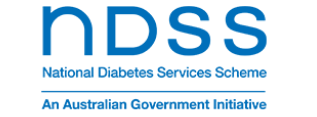The Diabetes in Schools program provides nationally consistent information and training for parents and families, principals and school staff and health professionals to ensure students with type 1 diabetes are supported to manage their condition while at school.
Families, schools and health professionals are encouraged to work together to support students to manage their type 1 diabetes at school so they have the chance to learn, achieve and be the best they can be.
The program contains three levels of training for school staff, with the educational resources able to be accessed online, making it easy for families, schools and health professionals to work together to support students.
Managing type 1 diabetes is a 24/7 job. It impacts everything a child does from what they eat, to the sport they play, to sleep overs and even play time. It can place families under significant stress as they do everything they can to keep their child safe and healthy – especially when they go to school. It can also be challenging for principals, teachers and school staff to know how they can best support a student with type 1 diabetes and their family.
The Diabetes in Schools program was developed to provide nationally consistent information and training for parents and families, principals and school staff and health professionals to ensure students with type 1 diabetes are supported to manage their condition while at school.
The Diabetes in Schools program was developed by Diabetes Australia. It is the result of extensive stakeholder consultation with parents, teachers, school staff, principals and health professionals and is supported by Australia’s leading diabetes groups including the Australian Diabetes Educators Association, the Juvenile Diabetes Research Foundation, the Australasian Paediatric Endocrine Group and the Australian Diabetes Society.
The program is funded by the Australian Government through the National Diabetes Service Scheme (NDSS).
There are currently various diabetes in schools activities around the various States and Territories, but no nationally consistent approach to support children with type 1 diabetes whilst they are at school. In particular, there is a lack of individualised support for students/schools provided by the usual diabetes care team (often hospital based).
There has been strong advocacy support for this new national program from parents and families, schools and staff, and health professionals all around Australia.
The Diabetes in Schools Program offers a multi-level training and support program that has been specifically designed for schools and staff. It is the first program that includes comprehensive face-to-face training to support students with the administration of insulin. The training program has been progressively rolled out across Australia since 2020.
The Diabetes in Schools program is built on extensive consultation with principals, teachers, parents and health professionals and provides a range of tools, resources, information, training and support to help schools support students with type 1 diabetes.
The program is supported by Australia’s leading diabetes groups including the Australian Diabetes Educators Association, the Juvenile Diabetes Research Foundation, the Australasian Paediatric Endocrine Group and the Australian Diabetes Society.
The program is “opt in”, free to families, students and schools and has been developed following extensive stakeholder consultation over many months with principals, teachers, school staff, school nurses, diabetes clinicians, and parents and students.
Consultation revealed schools wanted clarity around “best practice” type 1 diabetes management in a school context through access to a nationally consistent, credible information and training program, including access to face-to-face training provided by qualified healthcare professionals in the school environment.
Parents or carers should work closely with the principal of their child’s school to determine how the school will support the student to effectively management their diabetes.
The principal will be able to identify staff who agree to undertake the Diabetes in Schools training to support students with type 1 diabetes.
To get started, parents and carers can visit the Diabetes in Schools website and fill out the Tell a School form: https://www.diabetesinschools.com.au/#form
Schools who are interested in participating in ‘Level 3’ Individualised Skills Training will need to be registered with the program and request the training via the school principal or Authorised School Staff member. Staff will need to complete Level 1 and Level 2 training prior to undertaking Level 3.
Principal’s must verify themselves or may wish to transfer responsibility to an Authorised School Staff member. This can be done within their own dashboard or by making contact with your respective Diabetes in Schools State Coordinator.
Level 3 will be delivered face-to-face by health professionals (where appropriate the clinical treating team) and will be rolled out nationally in some states from March 2020.
You can Tell your school about the program by submitting form via the wesbite: https://www.diabetesinschools.com.au/#form
Schools can register for training directly here: https://www.diabetesinschools.com.au/training-and-support/
Having an issue with the Level 1 or 2 online training? Try these top tips for the best learning experience.
Tip #1
Try a different web browser. The Diabetes in Schools learning environment has been optimised for Google Chrome. Other browsers may experience poor usability, such as Firefox and Microsoft Edge or the [discontinued] Internet Explorer.
Tip #2
Check your ZOOM IN/OUT function. You may have been required to zoom in on your browser on another website. Sometimes this is held in your settings and can affect the screen now that you are on the Diabetes in Schools platform.
Tip #3
Log out and back in again. If this doesn’t work, close the browser or app you are using and open it again. If this doesn’t work either, reboot your device.
Tip #4
Improve your internet connection. Poor internet can make online learning both frustrating and inefficient so if your WiFi signal is weak, follow these tips:
- Don’t rely on WiFi. Use an ethernet cable and connect your device directly to your router.
- During your learning modules, stop all other online activity. Do NOT stream, download, or have other tabs open.
Tip #5
Your visual graphics software (in browser) may require updating. Update your browser settings, or contact your school IT team for help.
Tip #6
Make sure your Operating System is up to date. Updates remove outdated features and make the overall user experience better. Contact your school IT team for help.
Tip #7
Somethings still not right? First contact your schools internal IT team to ensure the problem isn’t at your end. Then get in contact with your local State Coordinator via email. This can be found at https://www.diabetesinschools.com.au/contact/
Further information and support can be found by contacting the NDSS hotline: 1800 637 700 or via your local State Coordinator. Contact details can be found at https://www.diabetesinschools.com.au/contact/


